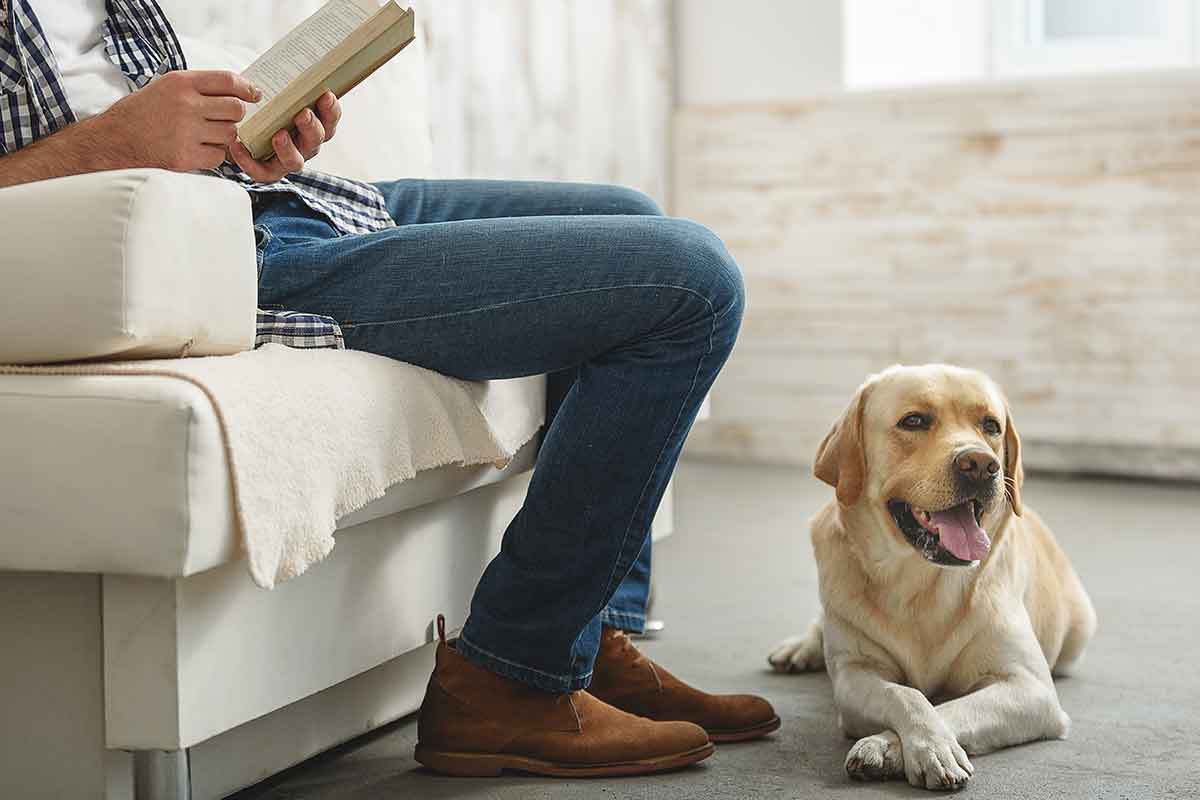If you’re happy, there’s a good chance your dog is happy, too. So says a recent study led by Mexican researcher M.T. González-Ramírez and published in the November-December 2018 Journal of Veterinary Behavior.
According to the study, dog owners who are less stressed have dogs who are better behaved. Conversely, stressed dog owners reported more misbehaviors by their dogs. The small study surveyed owners about their dogs’ separation-related and attention-seeking behaviors, as well as trainability. The researchers compared 36 dog owners who live with dogs who exhibit separation-related behaviors—vocalizing, destroying objects, and trembling—with 40 dog owners who said their dogs were behaved well when left alone.
“Owners with higher levels of stress may not have a relaxed relationship with their dogs, which can contribute to their annoyance about their dogs’ behavior,” the authors wrote in the study. “So they spend less time with them, increasing the anxiety in the dogs. In turn, a dog’s behaviors may annoy the owner and may be a source of stress for him or her, which affects his or her perceived happiness.”
According to John Huber, PhD, a clinical psychologist in Austin, Texas, and chairman of Mainstream Mental Health, the study results are not surprising.
“While animals aren’t operating at the same conceptual understanding level of human beings, they can comprehend when humans are angry, sad, or happy,” he says.
Given the effect that dog owners’ stress can have on their pets’ behavior—as well as the negative effects of stress on the human body—it’s important for dog owners to find ways to relax every day.
“Individuals can try to release their stress through physical exercise, deep breathing, or any other means, but they should do so away from their pets,” says Dr. Huber. “People who are calm tend to have a soothing effect on the people and animals around them. This calmness should help the pet to feel less stressed out.”
If your stress seems to be affecting your dog, take some time to unwind. Once you have calmed yourself, you can focus on helping your pet. Kenneth Martin, DVM, a board certified veterinary behaviorist in Austin, Texas, recommends using food to help your dog relax.
“For most pets, food may be offered as a classical counterconditioner—changing a negative emotion into a positive emotion by adding something pleasant to the situation or context,” he says “Food for most pets is likely a more effective counterconditioner than petting or praise.”
If you find that your dog is misbehaving a lot, rather than getting frustrated, think about what might be causing the problem. According to Dr. Huber, your dog might be acting out because you’re not sufficiently addressing his need for attention, playtime, or food.
“If humans shower their pets with love and attention, the hope is that it will have a positive impact on their behavior,” he says. “It is important to remember that our pets pick up on our physiology sooner than we do. Knowing this can help you start to identify your triggers and gain insight to your own state of being.”
This article was reviewed/edited by board-certified veterinary behaviorist Dr. Kenneth Martin and/or veterinary technician specialist in behavior Debbie Martin, LVT.








